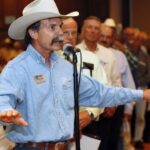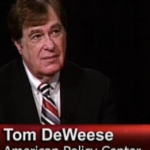By Tamrah Jo Ortiz
Thanks to my good friends on Facebook, I was alerted that the ugly head of the government is once again poking its’ large and obnoxious nose into places it doesn’t belong. Yes, I realize this is a inflammatory statement, hence, my writing here, instead of posting this as a comment at the www.opencongress.org website. (which, if you’d like, you can visit and look at the hoopla going on over various bills.)
So, let’s take a look at each of these and try to make sense of them.
NAIS – The National Animal Identification System. In brief, this idea is supposedly born of the desire to quickly identify and destroy animals that pose a threat to both food supply and our existence. (mad cow disease, avian bird flu, anyone?)
What is not so clear is how anyone thinks any of this will really work. Number 1, the folks that want to implement this currently employ thousands to audit tax returns and apparently have not been successful in creating a database or secure electronic means of verifying taxes or conducting a paperless census (which, by the way, we filled out, returned and apparently was ‘lost’ as a census person showed up at my house saying they didn’t get ours. On the flip side, my mom got 2 censuses to fill out and a friend never received any….)
Now, if these folks have not centralized, streamlined and made efficient the operations they have been in charge of for decades, how in the world are we to believe they can implement this kind of system and let us know about diseased food within 20 years of our consumption of it?
Number 2 – current figures show that given the ‘requirements’ of the system, most of the costs will fall on the small farmers and ranchers – courtesy of Wikipedia is the following:
“The costs of becoming NAIS compliant for a U.S. beef producer were found to be a minimum of $2.08 a head for large producers and as much as $17.56 a head for smaller operations, with an estimated average cost to cow/calf producers of $6.26 per animal, according to research by Christopher Raphael Crosby of Kansan State University’s Department of Agricultural Economics published in 2008.”
Does anyone hear “the rich get richer and the poor get poorer”?
Number 3 – Historically, outbreaks of disease occur in close population, improperly nourished animals. Farmer John who has 15 head of cattle and 160 acres of pasture does not face the same challenges as Mr. Beef, who has crammed 5,000 cows into a feedlot the size of a Wal-mart parking lot, where calves play on hills of cow patties and drink milk produced from the ingestion of soybean and corn meal (when cows have evolved to do just fine, thank you very much, on grass.)
Plus, Farmer John really depends on his herd for his food, to feed his family and perhaps a neighbor or two and to bring in some extra cash to pay the ever-increasing cost of living expenses. So he has a HUGE investment in making sure his herd is healthy and well-nourished. The loss of even one cow can make or break him.
Mr. Beef can depend on tax breaks, an adjustment of market prices, government bailouts, etc, if he somehow manages to lose his herd to disease. So who do you think takes better care of their herd?
On to the next – Codex Alimentarius – Proponents will tell you it’s an international effort to ensure the safety of food for all – as well as to keep me from accidently killing myself from taking too much Vitamin C.
Again, these efforts are brought to you by folks who can’t even balance their own budgets and settle disputes among themselves in a peaceful manner. Do you really think they know how much Vitamin C I can handle and furthermore, if I were receiving nutritious food, would I even need a supplement? If they are so invested in “Nutritious, Safe Food to further the health and well-being of the populace” then why did they ignore the published findings of biochemist Dr. Mary Enig in the 70’s, who warned of the dangers of trans-fats and hydrogenated fats to the human body? Um, no, took about 40 years before they figured that one out (if they even have yet……………)
I also find it interesting that many countries within the World Effort of this measure are ARDENTLY opposed to GMO foods and have been very insistent on pushing for foods containing those types of ingredients to be Labeled. Those who have a vested interest in controlling both seed and food supplies, by getting ‘patents’ on their genetically modified seeds and plants have kept up the pressure and keep taking a run at getting that ‘pesky little nuisance’ of required labeling for GMO foods buried under the rug.
All in all, I cannot see the reasoning for extending all this effort on the Codex other than for countries who take their food and health seriously to put up a ‘fence’ to keep those exports out from countries that do not. (meaning, US)
So with the history of these two long-running dramas, I now come to the most recent – Senate Bill S510.
Innocuously titled, “FDA Food Safety Modernization Act”, it lists high-sounding ideals and includes some of the following:
food facility re-inspection (um…I worked as a waitress for 12 years, I can tell you, restaurants get inspected every year……)
food recalls (aren’t they already allowed to do that?)
a voluntary qualified importer program (have these people never heard of eating locally?)
So those violently opposed to this bill read it and see how easily seed and food control could be placed in the hands of those who have no business telling us what we can grow or eat, share with our neighbors or sell at the local farmer’s market. And I agree with them to a point; while the bill does not specifically state any of these intents, the large generalized points of it are open to all kinds of interpretations.
History tells me the interpreters will translate it for the benefit of themselves, their agency budget and their large campaign contributors (corporations) before they will for my health and well being.
Again, if you look to history, deaths and illness related to the consumption of contaminated, diseased foods, has been linked to large corporate mono-culture farms, not the small local producers. Why? Well, because the small local producer not only feeds you, but their own family. They don’t have the time or the energy (or the insanity) to grow one garden with ‘good stuff’ for their family and another with ‘questionable stuff’ to sell at the local market.
In addition, if I get ‘bad food’ at the local farmer’s market, I know exactly who to go to with my accusations. When large farms put out questionable produce, it has also traveled through one or more broker warehouses, a packaging plant or two, the transportation gamut….on and on and its’ so easy to pass the buck on who exactly is to blame.
I’m also curious as to why Homeland Security is one of the committees listed on the bill’s information page. What, are they afraid terrorists are going to send us toxic bananas? Newsflash, if everyone ate organic and locally, this fear would be laughable. And I can tell you, any terrorist shows up at our local farmers market with evil intent on his mind, I can guarantee there are enough ‘rednecks’ around here that are just waiting for an opportunity to show the world what real Homeland Security looks like.
I also wonder just where they are going to get the money to implement all this when they are already crying about ‘deficits’ and ‘budget cuts’. To my mind, this has less to do with feeding the nation safely and more to do with feeding the oversized monster we call our government, as well as nudging out any competition to the large centralized food companies.
Implementation, testing and compliance enforcement take money – and that money will come from those who want to ‘buy into the market’ (meaning smaller operations won’t be able to afford to be in the market) – but most of the money will come from you and me, the consumer. What? You don’t think so? Just who do you think is paying for the Tobacco Company Settlements? It isn’t the companies or the government, its’ the consumers. But I’ll leave that debate for another time.
The legislation listed above can only make sense in a climate of fear. They can only pass when we blindly believe the government is really trying to protect us. When we believe that death is more heinous than liberty. (Oh where is Patrick Henry when you need him?)
Quit looking to the government to save you from harm. Know those who grow your food. Have a relationship. Trust me, they are much more invested in your health and well being than the FDA is. Because without you, they don’t have a livelihood. The FDA and government don’t either, but they have forgotten.
Remind them.



